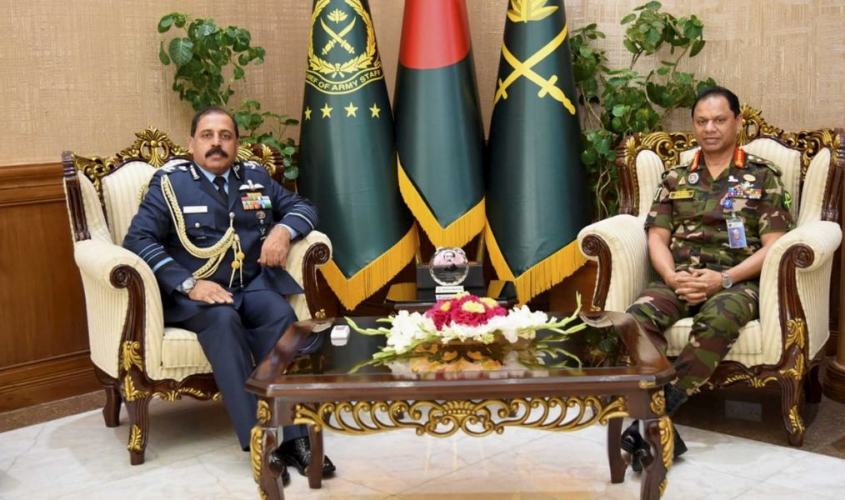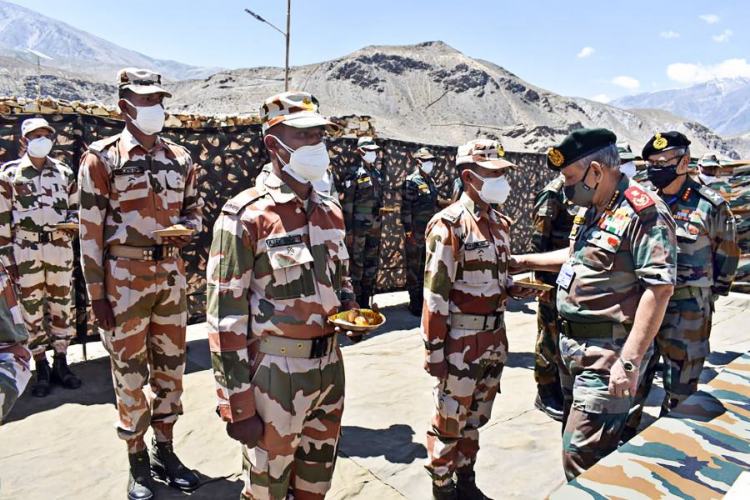NEW DELHI (PTI): Expeditious framing of a broad-based policy to deal with emerging security threats and futuristic challenges facing the country was a major focus of a meeting Prime Minister Narendra Modi held with Home Minister Amit Shah, Defence Minister Rajnath Singh and National Security Advisor Ajit Doval on Tuesday, people familiar with the development said.
The meeting took place two days after explosives-laden drones were used to carry out an attack on the Jammu Air Force station in the first such instance of suspected Pakistan-based terrorists deploying unmanned aerial vehicles to strike at vital installations.
"The government is coming out with a policy to collectively deal with the emerging challenges. It was decided to expedite the framing of the policy," one of the persons cited above said after the meeting.
Various ministries and departments are working on the policy to effectively counter the new and emerging non-traditional security challenges facing the country.
The defence ministry and the three services will play a leading role in the formulation of the policy as well as in its implementation by coordinating with all the leading stakeholders and security agencies.
It has also been learnt that the three forces are being told to adequately focus on bridging the gaps in effectively dealing with new-age challenges such as drone attacks and go for the procurement of the necessary hardware to contain those.
The meeting also discussed various other aspects, including equipping the security forces with modern equipment and involving more youngsters, start-ups and the strategic community in the field.
The Army has already been working on incorporating artificial intelligence, cognitive sciences, robotics, drones, quantum computing, nanotechnology and cyber capabilities as part of the efforts to deal with future challenges.
The people said the three services as well as key national security planners will have a series of meetings in the next few weeks and months to speed up the work on the policy.
They said the services have already been told to focus on acquiring anti-drone technologies to deal with attacks by unmanned aerial vehicles.
Following the Jammu attack, the Indian Air Force has enhanced the security at all its bases located in the border areas.
The Defence Research and Development Organisation (DRDO) has developed anti-drone technology to shoot down hostile drones in the range of two to three kilometres.
It is expected to conduct more research on extending the range.
A day after the attack on the Jammu Air Force station, fresh attempts to target the Ratnuchak-Kaluchak military station in Jammu with drones were thwarted by alert soldiers.
India to soon come out with policy to deal with emerging security threats
Article Posted on : - Jun 30, 2021
Other Related News
US Vice President Vance urges India to procure more American energy and military hardware
US Vice President JD Vance has urged India to drop non-tariff barriers, give greater access to its markets and buy more American energy and military hardware as he laid out a broader roadmap of deeper ties between the two nations for a "prosperous and peaceful" 21st century.
 Previous Article
Previous Article Next Article
Next Article












The Indian Air Force, in its flight trials evaluation report submitted before the Defence Ministry l..
view articleAn insight into the Medium Multi-Role Combat Aircraft competition...
view articleSky enthusiasts can now spot the International Space Station (ISS) commanded by Indian-American astr..
view article